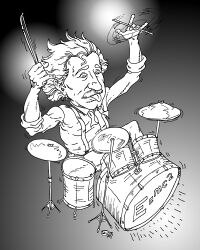October 17: Difference between revisions
(Created page with "{{Selected anniversaries/October 18}}") |
No edit summary |
||
| Line 1: | Line 1: | ||
{{Selected anniversaries/October | '''Are You Sure ... (October 17, 2020)''' | ||
{{Are_You_Sure/October 17}} | |||
<br style="clear:both"> | |||
[[File:Are You Sure (17 Oct 2020).png|thumb|left|Screenshot: Are You Sure (October 17, 2020)]] | |||
<br style="clear:both"> | |||
'''On This Day in History and Fiction''' | |||
{{Selected anniversaries/October 17}} | |||
Revision as of 16:05, 17 October 2020
Are You Sure ... (October 17, 2020)

• ... that mathematician Jacques Hadamard (8 December 1865 – 17 October 1963) contributed to number theory, complex function theory, differential geometry and partial differential equations; and that Hadamard described the creative process as having four steps: Preparation, Incubation, Illumination, and Verification?
• ... that Arab members of OPEC cut production by 5% and instituted an oil embargo against Israel's allies: the United States, the Netherlands, Rhodesia, South Africa, and Portugal on October 17, 1973; and that Saudi Arabia only consented to the embargo after Nixon's promise of $2.2 billion in military aid to Israel?
• ... that astronomers Wilhelm Fabry, Michael Maestlin and Helisaeus Roeslin were able to make observations of the supernova now known as Kepler's Supernova on 9 October, but did not record the supernova; that the first recorded observation in Europe was by Lodovico delle Colombe in northern Italy on 9 October 1604; that Johannes Kepler was only able to begin his observations on 17 October while working at the imperial court in Prague for Emperor Rudolf II; and that the supernova was subsequently named after him, even though he was not its first observer, as his observations tracked the object for an entire year?
On This Day in History and Fiction
1604: Kepler's Supernova: German astronomer Johannes Kepler observes a supernova in the constellation Ophiuchus.
1776: Leonhard Euler reads a paper to the St. Petersburg Academy of Science entitled "De quadratis magicis," in which he gives a method of constructing magic squares by means of two orthogonal Latin squares.
1887: Physicist and academic Gustav Kirchhoff dies. He contributed to the fundamental understanding of electrical circuits, spectroscopy, and the emission of black-body radiation by heated objects.
1888: Thomas Edison files a patent for the Optical Phonograph (the first movie).
1901: "Brainiac is planning to kill us all," warns Lord Kelvin.
1907: Guglielmo Marconi's company begins the first commercial transatlantic wireless service between Glace Bay, Nova Scotia, Canada and Clifden, Ireland.
1933: Albert Einstein flees Nazi Germany and moves to the United States.
1963: Mathematician Jacques Hadamard dies. He made major contributions in number theory, complex function theory, differential geometry and partial differential equations.
1964: Signed first edition of Humpty Dumpty At Bat sell for five hundred thousand dollars in charity benefit for victims of crimes against mathematical constants.
1973: OPEC imposes an oil embargo against a number of Western countries, considered to have helped Israel in its war against Egypt and Syria.
1999: Mathematician and physicist Nicholas Metropolis dies. He led the team of researchers which developed the Monte Carlo method.











